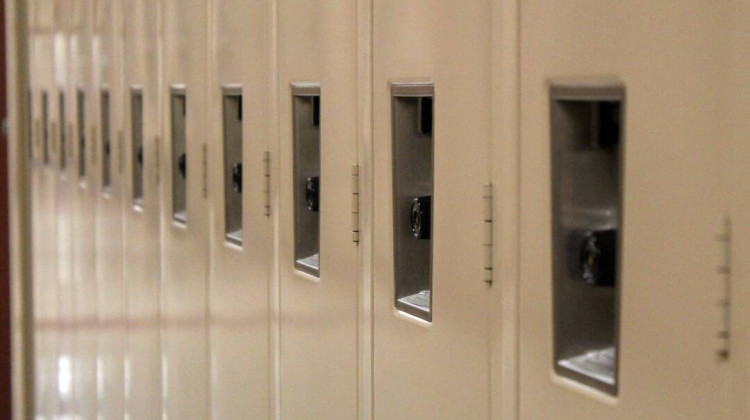Professors and Indiana University officials are among those who have come out against a bill, SB 202, that its author said aims to increase intellectual diversity on campus and reform tenure.
The bill's sponsor says reforms are needed to ensure Indiana residents want to attend university.
Bill sponsor and former deputy chief of staff at Purdue University, Senator Spencer Deery (R-West Lafayette), said this week's hearing on his bill only reinforced the idea that university campuses promote monolithic thinking.
“It reinforces for them [other lawmakers] the idea that, you know, this is a space Indiana should get out of and we should stop sending millions of dollars to places like Purdue,” he said. “That’s what I’m trying to change, that opinion.”
Specifically, the bill would create a promotion and tenure review process that includes an analysis of whether professors are creating an environment for “free inquiry, free expression, and intellectual diversity” and exposing students to “scholarly works from a variety of political or ideological frameworks.” Those include reviews that take into account the exposure of students to opinions unrelated to a faculty member's academic discipline.
The bill also creates a process for students and employees to submit complaints when a professor fails to meet the criteria related to intellectual diversity.
Deery said he believes his reforms would not harm tenure - but protect it.
“What this bill would do for the first time ever in Indiana history is put that into code, it’s law, so you cannot be retaliated against for your academic freedom,” he said. “That’s a big deal for faculty. Our faculty should be celebrating that.”
Purdue Professor and American Association of University Professors, AAUP, member Alice Pawley said Deery’s comments sound like “political blackmail.”
“Be neutral. Don’t make claims, the validity or quality of which is judged by the standards of your field, because that threatens your funding from the state,” Pawley said. “That’s why we have the value of academic freedom to begin with. That’s what tenure is supposed to protect.”
Pawley said she doesn’t buy the idea that the measure protects academic freedom.
“This whole bill to me feels Orwellian,” she said. “It claims to protect academic freedom when it threatens it, it claims to protect tenure when it threatens it… I don’t know what putting tenure into the state code would change.”
The bill has seen pushback from a range of university faculty and staff, including Indiana University President Pamella Witten who warned it could “put intellectual freedom at risk” and “threaten not just the stature of Indiana University, but the economic and cultural vitality of the state.”
Purdue University officials say they are working to fully understand the details of the bill.
Both sides of the debate point to a recent Campus Free Speech Report from 2023 from the Indiana Commission for Higher Education.
Those opposed to the bill point to the topline findings of the survey which found that roughly 78% of students strongly agreed with the statement “students can express their opinions freely” (15% were neutral on the statement and 6% strongly disagreed).
Purdue Professor and President of the Purdue chapter of the AAUP Stephanie Masta asked whether those numbers posed a problem at all.
“It’s a little unclear to us what problem this legislation is meant to solve within the state of Indiana,” she said. “The Commission for Higher Education’s own data suggests there is not a problem.”
And, Masta pointed out that enrollment at places like Purdue doesn’t appear to be suffering.
“Purdue just had its largest class of enrollment,” she said. “I’m pretty sure that not every single one of those students identifies as politically liberal.”
Deery argued that when looking at both conservative respondents and African American respondents to the survey it is clear not everyone feels a freedom to express themselves equally.
“Some of this undoubtedly is perception,” he said. “I don’t think you can dismiss all of it as perception though. In the end, whether it’s perception or whether it’s reality, if it keeps somebody out of school that matters and that should trouble us no matter your politics.”
The bill is expected to receive a vote in the House Education Committee sometime next week.
Contact WBAA/WFYI reporter Benjamin Thorp at bthorp@wfyi.org.
 DONATE
DONATE








 Support WFYI. We can't do it without you.
Support WFYI. We can't do it without you.